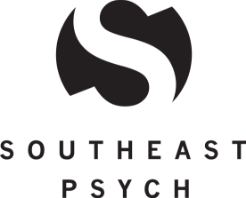If you’re constantly on edge, easily startled, or overwhelmed by racing thoughts, you’re not alone. For many people with anxiety, the experience isn’t just mental—it’s physical, emotional, and all-consuming. Whether you’re navigating persistent worry, panic attacks, or cycles of compulsive behavior, the weight of anxiety can interfere with your daily life in profound ways.
The good news? Anxiety is treatable. With support from a mental health professional, therapy can help you manage the symptoms, understand the root causes, and regain control over your life. At Southeast Psych, we work with individuals across Charlotte who are ready to take that first step.
Understanding Anxiety Disorders
It’s natural to feel anxious from time to time. But when worry becomes constant, excessive, or disruptive, it may signal an anxiety disorders. Anxiety isn’t one-size-fits-all—there are many types of anxiety, each with unique symptoms and challenges:
- Generalized Anxiety Disorder (GAD): Ongoing, excessive worry about everyday things
- Panic Disorder: Sudden episodes of intense fear or discomfort, often accompanied by physical symptoms like chest tightness or shortness of breath
- Obsessive Compulsive Disorder (OCD): Unwanted, repetitive thoughts and behaviors meant to reduce distress
- Post-Traumatic Stress Disorder (PTSD): Flashbacks, hypervigilance, or avoidance following a traumatic event
- Social Anxiety Disorders: Intense fear of judgment or embarrassment in social settings
While the specifics differ, all anxiety disorders can disrupt relationships, work, and self-esteem.
At Southeast Psych in Charlotte, our therapists are trained in treating a wide range of anxiety disorders, from GAD and OCD to panic and PTSD. No matter your starting point, we’re here to help.
How Therapy Helps
Therapy provides a safe, structured space to understand your anxiety and begin developing tools to cope. One of the most effective treatments is Cognitive Behavioral Therapy (CBT)—a practical, research-backed approach that focuses on identifying unhelpful thought patterns and changing how you respond to them.
Here’s how CBT for anxiety typically works:
- Identify triggers and anxious thoughts
- Learn to question and reframe distorted thinking
- Develop healthier behavioral responses to stress
- Practice coping techniques like breathing, grounding, or exposure exercises
Over time, therapy can help reduce the intensity of your symptoms and increase your ability to cope with anxiety—even in challenging situations.
Common Symptoms of Anxiety
Anxiety isn’t just a mental state. It often shows up in the body, and many people with anxiety mistake symptoms for other health conditions. Common physical symptoms include:
- Heart palpitations
- Muscle tension
- Trouble sleeping
- Digestive issues
- Dizziness or lightheadedness
Anxiety disorders can also make it hard to concentrate, feel joy, or be fully present. You may avoid situations that seem normal to others or worry constantly that something bad will happen—even when there’s no dangerous situation present.
If this sounds familiar, you’re not alone. Our team at Southeast Psych offers compassionate, expert care to help people across Charlotte find relief and regain peace of mind.
You Don’t Have to Manage It Alone
Many people live with anxiety silently. You might feel embarrassed or worry that your struggles aren’t “bad enough” to justify therapy. But anxiety doesn’t have to reach a crisis point before you seek support.
Therapy can also help if:
- You’re avoiding certain places, people, or tasks
- You feel exhausted from being in “survival mode”
- You’ve tried to manage it yourself but feel stuck
- Friends or family members have noticed a change in you
Talking with a mental health professional can bring clarity, validation, and hope. It’s not just about feeling less anxious—it’s about feeling more in control.
Therapeutic Approaches Beyond CBT
While cognitive behavioral therapy is often the first line of treatment, other therapies can also be helpful depending on your needs. These may include:
- Acceptance and Commitment Therapy (ACT)
- Exposure Therapy
- Mindfulness-based approaches
- EMDR (for trauma-related anxiety)
A skilled therapist will tailor your treatment to match your experience, personality, and goals.
At Southeast Psych, we match clients with therapists who specialize in anxiety and offer personalized, strengths-based care. Our Charlotte-based team helps individuals take meaningful steps toward healing—without pressure or judgment.
Building a Healthier Relationship with Anxiety
The goal of therapy isn’t to eliminate all anxiety—it’s to make it manageable. Anxiety, after all, is a survival mechanism. It only becomes a problem when it takes over your life.
With the right support, you can learn how to:
- Respond to anxious thoughts instead of reacting to them
- Feel more grounded and centered in stressful moments
- Reconnect with your goals, values, and relationships
Over time, many people experience not only symptom relief but greater emotional resilience, confidence, and joy.
Final Thoughts
Anxiety may feel like a wall between you and the life you want—but therapy can help you find the door.
If you’re ready to stop feeling overwhelmed and start building tools to manage anxiety, reach out to Southeast Psych in Charlotte. Our team is here to support you with effective, compassionate care tailored to your needs.
You deserve to feel safe, clear, and empowered. And with the right guidance, you can get there.
